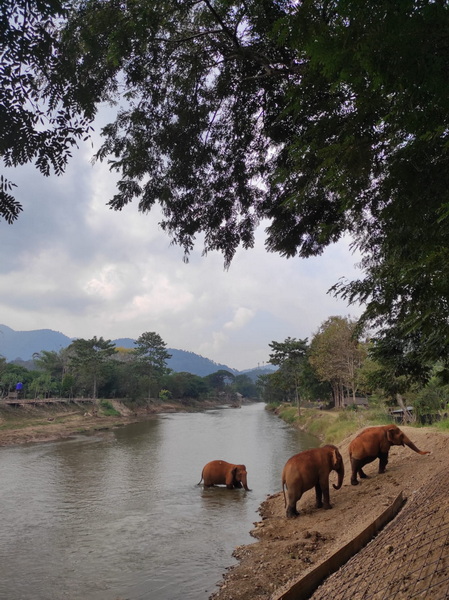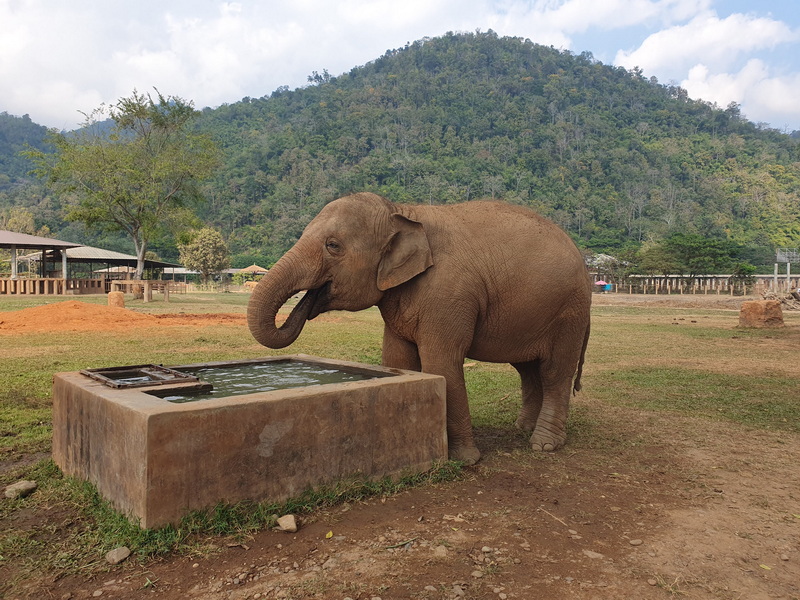Be a Conscious Traveler: Elephants in Thailand
By Nicola Archer
The world’s largest land animal, elephants, are highly intelligent and sensitive with an incredible memory. We have all heard of the idiom “an elephant never forgets,” right? Well, it is completely true – they will always remember a face!
A good memory and high levels of intelligence are what elephants are admired for in Asian culture, and in Korea, elephants symbolize wisdom and longevity. They are considered to bring good luck and prosperity. But why is it that elephants are the victims of so much suffering?
In the wild, elephants are at risk from having their natural habitat destroyed and being hunted for their tusks and trunks. It is not only elephants in the wild that are in danger, as elephants in captivity are suffering, too. They get their spirit crushed. They are beaten. Abused.
Young elephant calves get separated from their mothers, and both victims are chained and isolated, deprived of water and food until they succumb. This horrifying traumatic training method, called the “crush,” includes using sharp, pointed hooks to force the animals to do what is unnatural to them. They live out their entire lives in fear, utterly helpless. What can we do to help them?
With travel restrictions being lifted, more people than ever are opting to travel, and the opportunity to see an elephant in Southeast Asia is high on many bucket lists. But can this be done without contributing to the cruelty? This last winter break, I went to Thailand to find out.
The elephant tourism industry in Thailand is huge. According to a 2020 report by the World Animal Protection organization, before the pandemic, this industry generated between 581–770 million dollars each year. That is a lot of revenue from a tourist attraction. Stalls line up to sell you their excursions: riding, bathing, and watching an elephant painting. But all of these activities are tremendously unethical no matter how “green” they might appear on the poster. Do not be fooled. Riding elephants causes detrimental spinal damage. Bathing with elephants causes them incredible stress, and they excrete in the water, so having them stand or sit around all day there so that visitors can take selfies is especially uncomfortable and unhygienic for them. And painting… seriously?! When did you ever hear of an elephant Picasso wandering in the wild?

Luckily, there are places out there that do support and nurture elephants who have previously suffered from abuse. Elephant Nature Park in Chiang Mai Province, Northern Thailand, is one. They care for distressed elephants from all over Thailand and place an emphasis on educating and encouraging visitors to observe the animals behaving naturally rather than forcing human-elephant contact.
Opportunities to visit and volunteer are available through their website, and booking in advance is highly recommended. Traveling on the hop, options to stay overnight at the rehabilitation center over Christmas were fully booked, so I opted for a day trip. Forget Rudolph and mince pies, it was going to be all about elephants and pad thais this last Christmas.
You think a traditional English Christmas dinner with all the trimmings is a lot to feast on? Elephants eat a lot! Although how much one eats can depend on its age, on average, an adult elephant could consume the equivalent of about two cobs of corn per minute!
As a one-day visitor at Elephant Nature Park, you will get a tour of the park, which includes a backstage look at the kitchen – storing stacks of bananas and watermelons. Fruits are one of their favorite things to graze on. While we were there, we were lucky enough to catch snack time and observe some being fed by the center’s local employees. It was so impressive how the animals maneuver their trunks to eat with. I struggle picking up noodles with two chopsticks, so how I would cope with one seven-foot-long spoon to scoop up solids with, I do not know!
Halfway through the day, you get to crave your hunger pangs, too, and are provided with a delicious vegetarian buffet lunch. Self-serve, you can take your lunch and find a spot on the viewing platform where you can delight at watching elephants in the distance going about their day. It is really quite breathtaking observing them meander around and please themselves. We even caught a glimpse of a playful, young elephant chasing after another making trumpeting sounds!
If you want to find out more about Elephant Nature Park or make a booking, you can find them on Instagram, Facebook, Twitter, YouTube, and their website (details at the end of this article.)
There are many other centers in Thailand putting elephant welfare first, and the World Animal Protection charity website has a convenient list of elephant-friendly venues in Thailand, Cambodia, and Nepal. Be savvy. If you want to see an elephant on your travels, do your research. Do not let posters use selective wording like “sanctuary” or “orphanage” fool you. Choice vocabulary like that does not necessarily equate to higher animal welfare. Be aware of the unethical practices that still exist and know you have a choice to make a stand for what is right and not support those companies that endorse abuse. Help elephants live the peaceful, playful life they deserve.
Helpful Websites:
People for the Ethical Treatment of Animals (PETA)
The Author
Nicola Archer is a Kia Tigers’ enthusiast and an animal rights campaigner. While living in Gwangju, she enjoyed being a part of the Gwangju Hikers club and the occasional saunter down Chungjang-ro.





